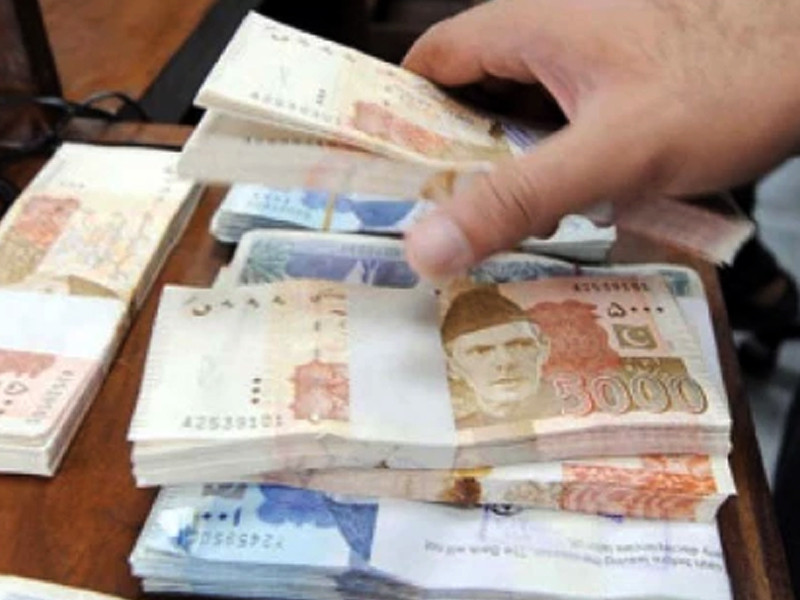
Experts have presented a proposal for implementing full reserve banking, aimed at reducing domestic debt, interest, inflation and unemployment.
They said the proposal is more than just a financial blueprint; it is a call to action for a nation grappling with economic instability and the quest for ethical banking.
They made the remarks at a programme titled "Full Reserve Banking: a Solution Claiming to Eliminate Domestic Debt, Interest and Inflation", held at the Institute of Chartered Accountants of Pakistan (ICAP) House on Tuesday night. A full reserve system, supported by renowned economists, is the ultimate solution to piling public debt, the burden of interest and rising inflation that is badly hurting the labour class. Implementation of a full reserve system in place of the fractional reserve system will quickly eliminate government debt and interest cost.
Talking as a guest speaker, Corporate & Management Consulting Firm Director and Audit Committee Character Education Foundation Chairman Qanit Khalilullah stated, "In brief terms, the proposal for full reserve banking aims for zero domestic debt, zero interest, zero inflation in terms of money, and zero unemployment. It is more than a financial blueprint; it is a call to action for a nation grappling with economic instability and the quest for ethical banking. In one way or another, money affects almost everything. If we want to deal with the major social, economic, and environmental challenges, changing the nature of the money we use is where we have to start. Right now, we have a problem."
Khalilullah stated that more than 90% of all the money in the country's economy is created by banks when they issue loans. Currently, more than 50% of government's finance is being wasted on interest payments. The huge debt has hindered the government from undertaking any constructive work for people, who are living a difficult life. It is ironic that despite having money creation powers, the state is borrowing huge sums from private banks to pay interest, resulting in high money expansion, inflation and accumulating debt for the future generation.
Generally, bank lending across the world does not contribute to productive use or GDP growth. Instead, it results in house price bubbles and speculation in financial markets. This has led to permanent economic and financial instability, ever-widening inequality, the highest personal debt, and house prices that very few people can afford.
In the current financial system, banks create new money when they issue loans in the form of numbers (bank deposits) that appear in bank accounts.
In the words of the Bank of England: "When a bank makes a loan, for example, to someone taking out a mortgage to buy a house, it does not typically do so by giving them thousands of pounds worth of banknotes. Instead, it credits their bank account with a bank deposit of the size of the mortgage. At that moment, new money is created." With their profit-maximising objectives, banks aim to issue as many loans as possible. With a 5% reserve requirement for customer deposits currently set by the State Bank of Pakistan (SBP), banks, in aggregate, may issue loans up to 20 times their cash deposits, leading to substantial monetary expansion.
An increased reserve requirement of sovereign money from 5% to 100% against deposits would force commercial banks to hand over government debt in the form of government bonds and treasury bills to the SBP in exchange for sovereign money, resulting in debt elimination without inflationary pressure.
Thereafter, new electronic or digital money would be created only by the SBP exactly like banknotes. The new money will be created in proportion to GDP growth, based on the production of real goods and services. This approach would ensure overall price stability in the economy. Further, new money would be created free of debt.
The transition to 100% reserves is straightforward, reasonably fast, and without any adverse repercussions for financial or economic markets, as confirmed by Milton Friedman – the most renowned monetary economist of the 20th century.
ICAP Southern Regional Committee (SRC) Continuing Professional Development (CPD) Convener Usama Rashid said full reserve banking, which may be conservative but has a pragmatic approach, can contain or stop artificial money being created by the present banking system. If the money supply is controlled, it will help to curb inflation, tax, government expenditures, etc. It is indeed a viable solution.
ICAP SRC Chairman Syed Junaid Ali stated that this is a unique idea that may get rid of the interest system, benefiting Muslims.


1731933289-0/BeFunky-collage-(68)1731933289-0-165x106.webp)


1729662874-0/One-Direction-(1)1729662874-0-165x106.webp)












COMMENTS
Comments are moderated and generally will be posted if they are on-topic and not abusive.
For more information, please see our Comments FAQ